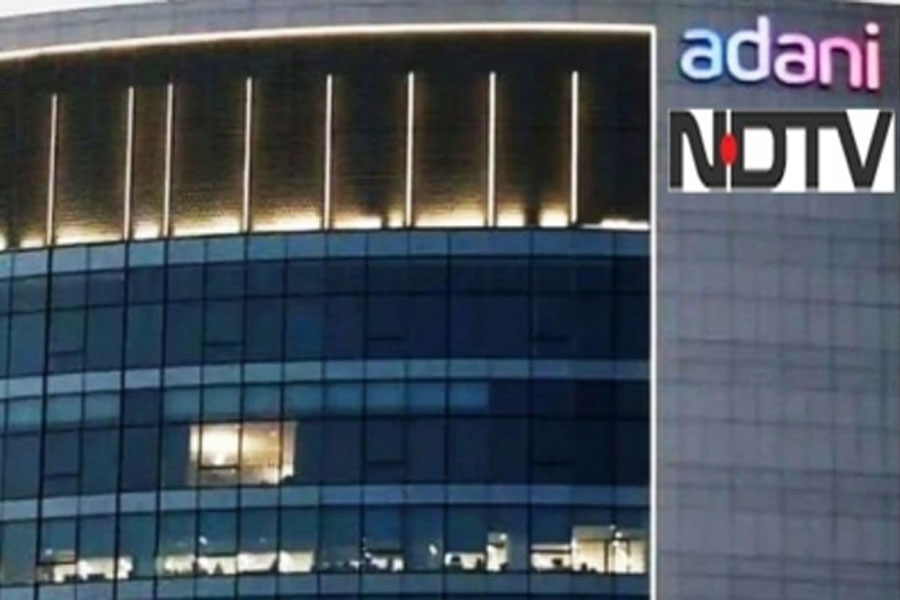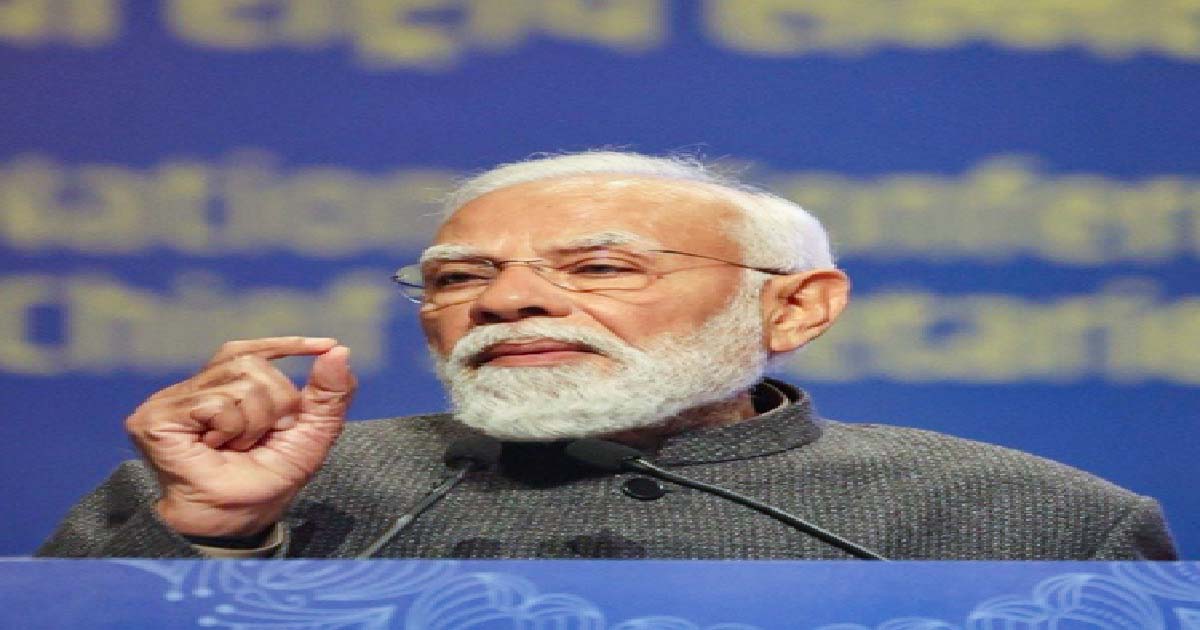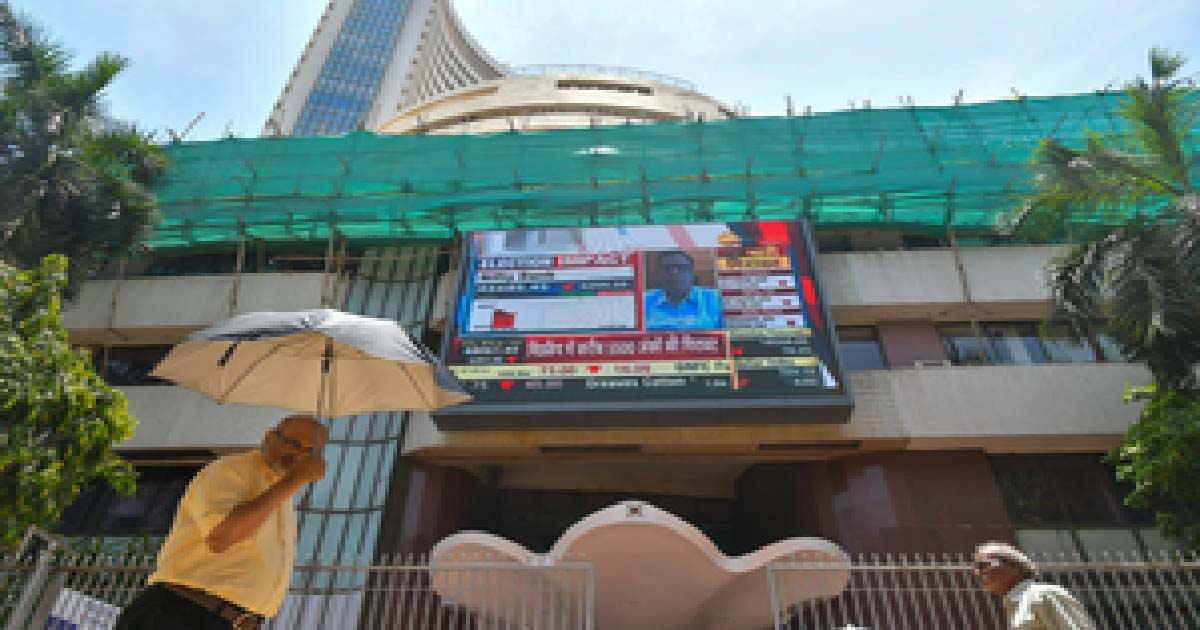Business
CARE Ratings places NDTV’s bank facilities on ‘credit watch’, shares gallop

The shares of Adani group’s takeover target satellite channel company New Delhi Television Ltd (NDTV) continued to hit the upward circuit on Monday with the price touching Rs 540.85.
The 52-week low price for the scrip was Rs 72.
Meanwhile, credit rating agency CARE Ratings has placed ratings assigned to NDTV’s bank facilities on credit watch with developing implications following takeover decision by the Adani group.
NDTV, which had postponed its 34th annual general meeting (AGM)to September 27 from the earlier fixed date of September 20, said it has completed the dispatch of notice for the shareholders meeting on September 3, 2022.
Due to change in the date of the AGM, the Register of Members and the Share Transfer Book of the Company will now remain closed September 20-27 (both days inclusive), NDTV had said.
The scrip has been on the upswing since August 23, the day on which the Adani group’s AMG Media Networks announced its subsidiary Vishvapradhan Commercial Private Ltd’s (VCPL) decision to exercise its rights to acquire 99.5 per cent of equity shares of RRPR Holding Private Ltd, the investment company of NDTV promoters – Prannoy Roy and Radhika Roy.
The VCPL holds 1,990,000 warrants of RRPR Holding entitling it to convert them into 99.99 per cent stake in the latter.
The VCPL has exercised its option in part, resulting in acquisition control of RRPR Holding — 1,990,000 equity shares or 99.50 per cent.
RRPR Holding holds 29.18 per cent stake in NDTV that has three national television channels.
This triggered the issue of open offer to acquire shares of NDTV from the public as per SEBI’s (Substantial Acquisition of Shares and Takeovers) Regulations, 2011.
Placing the credit ratings of NDTV’s bank facilities on credit watch with developing implication, CARE Ratings said it will continue to monitor the developments in this regard and will take a view on the ratings once the exact implications of the acquisition on the credit risk profile of the company are clear.
According to CARE Ratings, the ratings continue to remain constrained by high exposure towards group companies and revenue concentration risk as the company majorly generates revenue from advertisement which in turn exposes the company’s revenue profile to the business cycle of the advertisers.
“The ratings are also constrained on account of uncertainty over ongoing litigations against the company and its promoters especially pertaining to tax demand, hence the impact of the same on operational and financial risk profile of the company is not clear,” CARE Rating said.
According to CARE Ratings, NDTV had a total investment of Rs 335.13 crore in its subsidiaries/joint ventures/associates as on March 31, 2022 (Rs 325.03 crore as on March 31, 2021) as against its tangible net worth of Rs 345.09 crore as on March 31, 2022, majority of which are in NDTV Networks Limited, having an investment of Rs 315.70 crore as on March 31, 2022 (NDTV Networks Limited have a negative net worth of Rs 28.48 crore as on March 31, 2022).
“There are a number of ongoing litigations against the company especially pertaining to tax demand, the outcome of which will be crucial, particularly in the matter pertaining to transaction with Universal Studios International BV (a General Electric company) wherein a tax demand of
Rs 450 crore had been raised against the company for AY 2009-10,” CARE Ratings said.
“Further, the company had also received demand notice from SEBI for alleged non-disclosure of tax demand dated November 22, 2019, against which the company filed an appeal and matter is likely to be listed on September 12, 2022. Company also received show cause notice from the Directorate of Enforcement (ED) for the alleged contraventions under Foreign Exchange Management Act, 1999 (“FEMA”),” the credit rating agency said.
The CARE Ratings said the company also received notice dated August 20, 2018, from SEBI in regard to alleged violation of Clause 36 of erstwhile Listing Agreement for non-disclosure of loan agreements entered into by Prannoy Roy, Radhika Roy and RPRR Holding with VCPL in 2009-10.
“Further, the investigation by CBI is also pending with respect to the FIR registered against the company, promoters and other officials on August 19, 2019, in a case of alleged violation of foreign direct investment rules in one of their companies under section of Indian Penal Code, 1980 and Prevention of Corruption Act, 1988. In addition to this, there are few other investigations also pending w.r.t. income tax demand. Any adverse developments in relation to these ongoing legal cases having a material impact on the operational or financial risk profile of the company shall remain negative from the credit perspective,” CARE Ratings said.
Business
Sensex, Nifty end flat amid mixed sectoral cues

Mumbai, Dec 30: Indian benchmark indices ended Tuesday’s session almost flat, but with a slight negative tone, as gains in PSU banks, metal and auto stocks were offset by selling pressure in IT, FMCG, realty and pharma shares.
The Sensex closed at 84,675.08, slipping 20.46 points or 0.02 per cent, while the Nifty settled marginally lower at 25,938.85, down 3.25 points or 0.01 per cent.
“The Nifty has also slipped below the 21 EMA, reinforcing the short-term downtrend. Immediate support is placed in the 25,850–25,870 zone,” market watchers stated.
“A decisive break below this level could intensify bearish sentiment, while resistance is placed at 26,000,” analysts mentioned.
Markets witnessed a cautious mood as investors balanced sector-specific buying against profit booking in select heavyweights.
On the Sensex, stocks such as Eternal, Infosys, Asian Paints, UltraTech Cement and Bajaj Finance ended among the top losers, weighing on the index.
On the other hand, M&M, Tata Steel, Bajaj Finserv and Axis Bank provided support and closed higher.
The broader market also saw mild weakness. The Nifty Midcap 100 index ended lower by 0.15 per cent, while the Nifty Smallcap 100 declined 0.28 per cent.
Sector-wise, real estate, IT and pharma stocks remained under pressure. The Nifty Realty index fell 0.84 per cent, while the Nifty IT and Pharma indices declined 0.74 per cent and 0.17 per cent, respectively.
In contrast, strong buying was seen in PSU bank, metal and auto stocks. The Nifty PSU Bank index jumped 1.69 per cent, the Nifty Metal index rose 2.03 per cent, and the Nifty Auto index gained 1.08 per cent.
Analysts said that the market ended the day on a flat note as investors preferred selective buying, with sectoral trends driving movement rather than broad-based participation.
“Fresh buying at lower levels, along with short covering in banking, auto, and metal stocks following the expiry of monthly derivative contracts, helped the Nifty recoup most of its intraday losses and close the session largely flat,” market watchers mentioned.
Business
From labour laws to market reforms, India’s growth story built on credibility and stability: PM Modi

New Delhi, Dec 30: Prime Minister Narendra Modi on Tuesday said that India’s growth story is being shaped by credibility, stability, and long-term confidence, driven by a series of sustained reforms across sectors ranging from labour laws and trade agreements to logistics, energy, and market reforms.
In a post on X, the Prime Minister referred to Union Minister Hardeep Singh Puri’s write-up on “Reform Express 2025”, which reflects the “quiet but consistent work of governance that has helped clear long-pending bottlenecks week after week”.
PM Modi said these steady reforms are laying a strong foundation for India’s future growth.
“Union Minister Hardeep Singh Puri writes on Reform Express 2025. He reflects on the quiet, cumulative work of governance that cleared bottlenecks week after week,” he said.
“From labour laws and trade agreements to logistics, energy and market reforms, India’s growth story is being built on credibility, stability and long-term confidence,” he added.
In his article, Union Petroleum and Natural Gas Minister Puri highlighted how the PM Modi government’s reform push is improving ease of doing business and strengthening investor confidence.
Puri had described “Reform Express 2025” as the cumulative impact of consistent governance, where obstacles are addressed regularly rather than through sudden, disruptive changes.
He had said that in an uncertain global environment marked by political instability, the steady leadership of Narendra Modi stands out.
Puri had pointed out that key steps such as modern labour codes, major trade agreements, the Securities Market Code Bill and the Indian Ports Act 2025 are creating a solid base for long-term economic expansion.
He also said that the SHANTI Bill is a major step towards modernising India’s civil nuclear framework.
According to the minister, these reforms follow a clear pattern of cleaning up outdated laws, decriminalising minor offences, modernising labour compliance, strengthening market oversight, digitising trade processes, improving logistics, and reducing risks in long-term energy investments.
Business
Sensex, Nifty trade flat amid mixed global cues

Mumbai, Dec 29: Indian benchmark indices traded flat with a mild positive bias early on Monday, tracking mixed global cues and subdued year-end participation.
As of 9.30 am, Sensex moved up 40 points, or 0.04 per cent to 85,081 and Nifty gained 14 points, or 0.05 per cent to 26,057.
Main broad-cap indices performed in line with benchmark indices, with the Nifty Midcap 100 advanced 0.14 per cent, while the Nifty Smallcap 100 added 0.18 per cent.
Tech Mahindra, Tata Steel and NTPC were among the major gainers in the Nifty Pack, while losers included Bajaj Finserv, Axis Bank, Bajaj Finance and Tata Consumer.
Among sectoral gainers, the Nifty Metal index was the top performer, rising 1.11 per cent, followed by Nifty Auto and Nifty Realty, which gained 0.26 per cent and 0.25 per cent, respectively.
According to analysts, immediate support is placed at 25,850–25,900 zone, while 26,150–26,200 remains a crucial resistance band. Stable crude prices and a relatively steady rupee continue to offer underlying support, preventing sharp downside.
They further said that underperformance of India compared to most developed and emerging markets in 2025 is set to change in 2026 as Indian macros are in the ‘Goldilocks’ zone, with robust economic growth and recovery in earnings from Q3 FY26.
However, these factors are not enough to spark a rally soon, market watchers said. The market needs a US-India trade deal with positive surprises for India to rebound. A consolidation phase is likely in the near term in the absence of such surprises, they added.
Asia-Pacific markets traded mixed in the morning session, as investors kicked off the final trading week of the year.
In Asian markets, China’s Shanghai index advanced 0.31 per cent, and Shenzhen edged up 0.03 per cent, Japan’s Nikkei lost 0.31 per cent, while Hong Kong’s Hang Seng Index gained 0.39 per cent. South Korea’s Kospi added 1.52 per cent.
The US markets ended in the red zone on the last trading day, as Nasdaq lost 0.09 per cent, the S&P 500 eased 0.03 per cent, and the Dow moved down 0.04 per cent.
On December 26, foreign institutional investors (FIIs) sold equities worth Rs 317 crore, while domestic institutional investors (DIIs) were net buyers of equities worth Rs 1,772 crore.
-

 Crime3 years ago
Crime3 years agoClass 10 student jumps to death in Jaipur
-

 Maharashtra1 year ago
Maharashtra1 year agoMumbai Local Train Update: Central Railway’s New Timetable Comes Into Effect; Check Full List Of Revised Timings & Stations
-

 Maharashtra1 year ago
Maharashtra1 year agoMumbai To Go Toll-Free Tonight! Maharashtra Govt Announces Complete Toll Waiver For Light Motor Vehicles At All 5 Entry Points Of City
-

 Maharashtra1 year ago
Maharashtra1 year agoFalse photo of Imtiaz Jaleel’s rally, exposing the fooling conspiracy
-

 National News1 year ago
National News1 year agoMinistry of Railways rolls out Special Drive 4.0 with focus on digitisation, cleanliness, inclusiveness and grievance redressal
-

 Maharashtra1 year ago
Maharashtra1 year agoMaharashtra Elections 2024: Mumbai Metro & BEST Services Extended Till Midnight On Voting Day
-

 National News1 year ago
National News1 year agoJ&K: 4 Jawans Killed, 28 Injured After Bus Carrying BSF Personnel For Poll Duty Falls Into Gorge In Budgam; Terrifying Visuals Surface
-

 Crime1 year ago
Crime1 year agoBaba Siddique Murder: Mumbai Police Unable To Get Lawrence Bishnoi Custody Due To Home Ministry Order, Says Report












